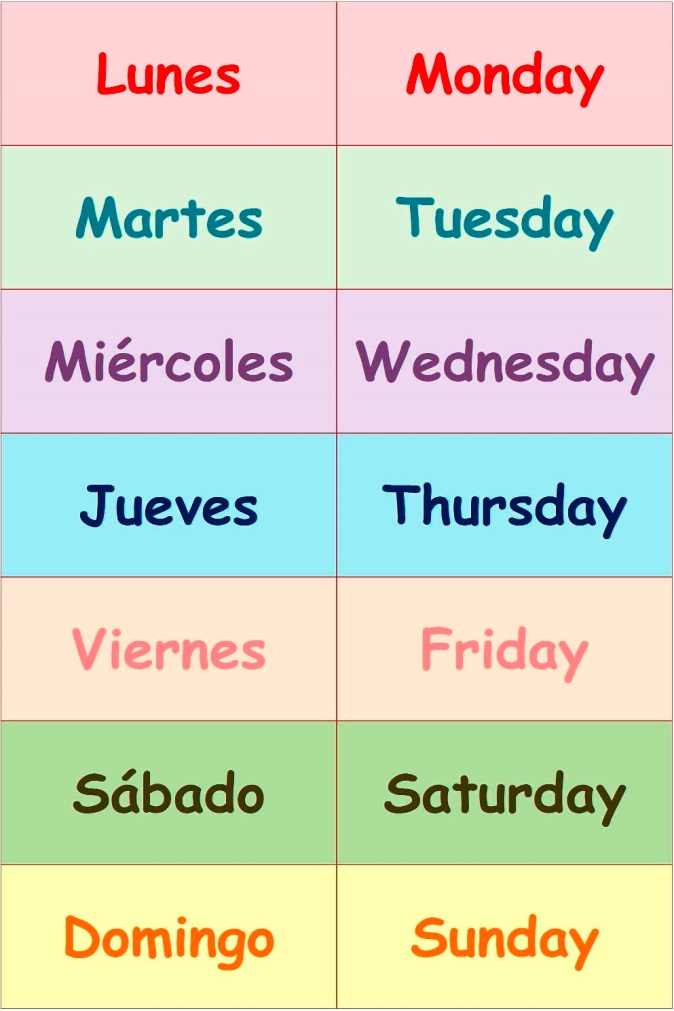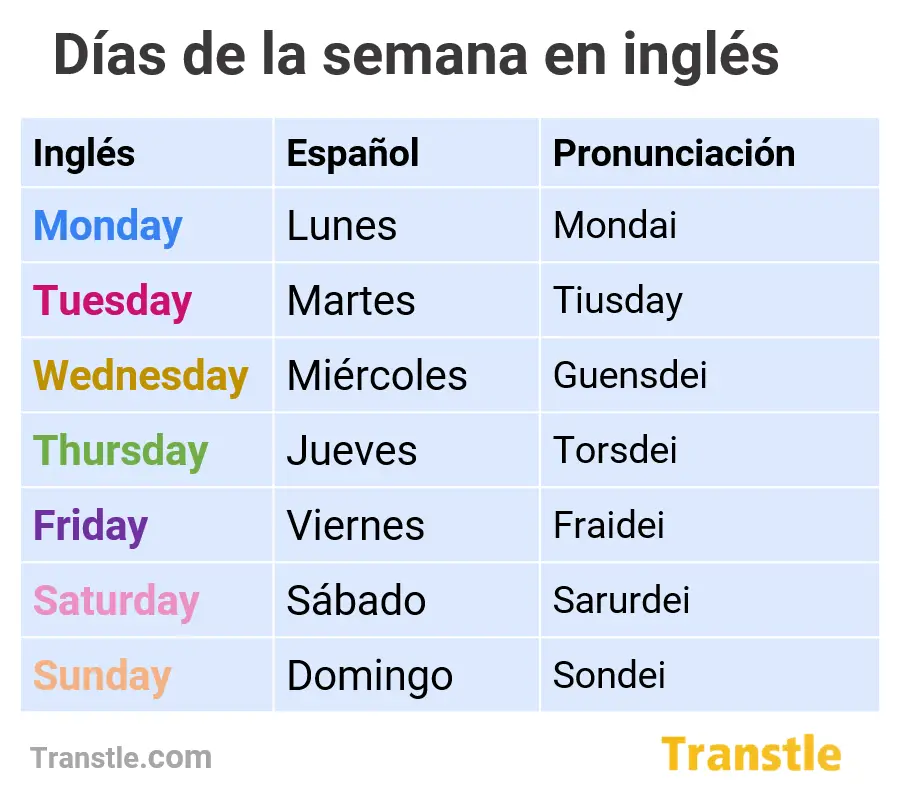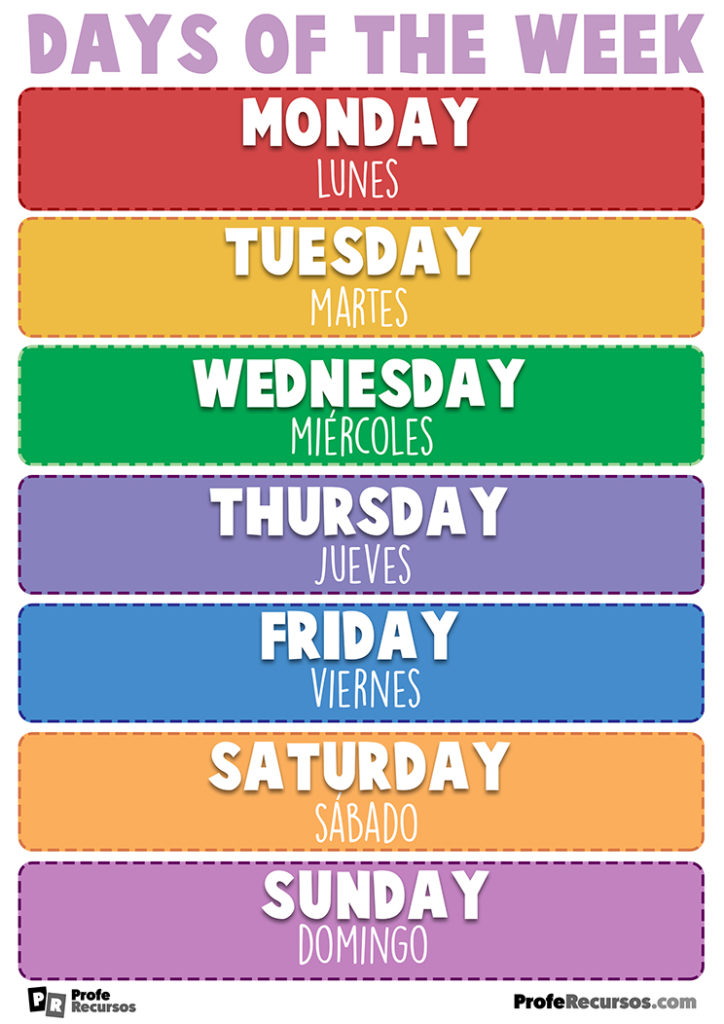Have you ever found yourself scratching your head, wondering how to say "dias" in English? You're not alone, amigo. Whether you're learning English as a second language or brushing up on your skills, getting the hang of how we talk about days in English is crucial. It's not just about translating words; it's about understanding the nuances of daily communication. So, buckle up because we're diving deep into this topic, and by the end of this guide, you'll be a pro at saying "dias" in English like a native speaker. Trust me, it's going to be lit!
Let's face it, language learning can sometimes feel like trying to solve a puzzle with missing pieces. But don't worry, we've got your back. This article is all about simplifying the process and making it as enjoyable as possible. Whether you're planning a trip abroad, chatting with English-speaking friends, or just want to expand your vocabulary, mastering how to say "dias" in English is a game-changer. So, let's get started, shall we?
By the way, this isn't just another boring language lesson. We'll sprinkle in some fun facts, useful tips, and even a few laughs along the way. Think of it as a language adventure where you're the hero. Ready to conquer the world of English days? Let's do this!
Read also:Freeze Nova
Understanding "Dias" in English
What Does "Dias" Mean in English?
So, what's the deal with "dias"? In simple terms, "dias" is Portuguese or Spanish for "days." In English, we just say "days." Easy peasy, right? But hold your horses because there's more to it than meets the eye. Depending on the context, you might need to use different words or phrases to express the same idea. For example, if you're talking about specific days, you'd use names like "Monday," "Tuesday," and so on. But we'll get to that later.
Let's break it down a bit more. Imagine you're in a conversation, and someone asks, "How many dias are in a week?" In English, you'd reply, "There are seven days in a week." See how smooth that was? The key is understanding the context and choosing the right words. And don't worry, we'll cover all the contexts you need to know.
Days of the Week in English
Meet the Fabulous Seven: The Days of the Week
Now that we've got the basics down, let's introduce you to the stars of the show: the days of the week. In English, we have seven glorious days, and each one has its own unique name. Here's a quick rundown:
- Monday
- Tuesday
- Wednesday
- Thursday
- Friday
- Saturday
- Sunday
These names might sound a little different from what you're used to, but trust me, they're not that hard to remember. Think of them as your new best friends in the world of English. Plus, once you get the hang of them, you'll be able to talk about your schedule, plans, and even your favorite TV shows with ease.
Common Phrases Involving Days
Phrases That Will Make You Sound Like a Pro
Knowing the names of the days is one thing, but using them in real-life situations is where the magic happens. Here are some common phrases involving days that you can start using right away:
- "What day is it today?" – A classic question to start any conversation.
- "See you on Monday!" – Perfect for saying goodbye after a fun weekend.
- "Every day is a new opportunity." – A motivational phrase to keep you going.
- "I'll call you in a couple of days." – Great for making plans without being too specific.
See how easy it is to incorporate these phrases into your daily life? They'll make your English sound more natural and fluent in no time.
Read also:Jessica Steen
Understanding Time Frames in English
From Days to Weeks: Expanding Your Vocabulary
Once you've mastered the days of the week, it's time to step up your game and learn about time frames. In English, we use words like "today," "yesterday," and "tomorrow" to talk about specific moments in time. But wait, there's more! We also have phrases like "this week," "next week," and "last week" to help us navigate the calendar. Let's take a closer look:
- "Today is Friday." – Telling someone what day it is.
- "I saw her yesterday." – Talking about something that happened in the past.
- "We're going to the beach tomorrow." – Making plans for the future.
- "I'll be back in a week." – Setting expectations for your return.
These phrases are like the secret weapons in your English-speaking arsenal. Use them wisely, and you'll be unstoppable.
Tips for Learning English Days
Practical Tips to Boost Your Skills
Learning a new language can sometimes feel overwhelming, but with the right approach, it can be a breeze. Here are some practical tips to help you master how to say "dias" in English:
- Practice daily. Even 10 minutes a day can make a huge difference.
- Use flashcards or apps to memorize the days of the week.
- Watch English TV shows or movies to hear how native speakers use these words.
- Engage in conversations with English-speaking friends or language partners.
Remember, consistency is key. The more you practice, the faster you'll improve. And don't forget to have fun while you're at it!
Common Mistakes to Avoid
Don't Let These Pitfalls Trip You Up
Even the best of us make mistakes when learning a new language. Here are some common errors to watch out for when saying "dias" in English:
- Mixing up the days of the week. Double-check the spelling and pronunciation.
- Forgetting to capitalize the names of the days. In English, they're always capitalized.
- Using the wrong prepositions. For example, "on Monday" versus "in the morning."
By being aware of these potential pitfalls, you'll be able to avoid them and sound more confident in your conversations.
Cultural Insights About Days in English
Why Days Matter in English-Speaking Cultures
Did you know that the days of the week in English have deep cultural and historical significance? For example, Sunday is often considered a day of rest in many English-speaking countries, while Monday is seen as the start of a new week. Understanding these cultural nuances can give you a deeper appreciation for the language and its traditions.
Plus, knowing about holidays and special occasions tied to specific days can help you connect with native speakers on a more personal level. For instance, Thanksgiving is always celebrated on the fourth Thursday of November in the United States. Cool, right?
Practical Exercises to Improve Your Skills
Put Your Knowledge to the Test
Now that you've learned the theory, it's time to put it into practice. Here are some exercises to help you reinforce what you've learned:
- Write a short paragraph about your weekly schedule using the days of the week.
- Create a dialogue between two people discussing their plans for the weekend.
- Listen to an English podcast or radio show and take note of how they use time-related phrases.
These exercises will not only improve your language skills but also boost your confidence in real-life situations.
Advanced Vocabulary for Talking About Days
Take Your Skills to the Next Level
Once you're comfortable with the basics, it's time to expand your vocabulary. Here are some advanced words and phrases related to days:
- "Business days" – Refers to weekdays excluding weekends and holidays.
- "Bank holidays" – Public holidays when banks and many businesses are closed.
- "Leisure time" – Free time for relaxation and enjoyment.
Using these words will make your English sound more sophisticated and polished. And who doesn't want that?
Conclusion: Your Journey to Mastering "Dias" in English
Wow, we've covered a lot of ground, haven't we? From understanding what "dias" means in English to mastering advanced vocabulary, you're now equipped with the tools to talk about days like a pro. Remember, learning a language is a journey, not a destination. Keep practicing, keep exploring, and most importantly, keep having fun.
So, what are you waiting for? Go out there and show the world how awesome your English skills are. And don't forget to share this article with your friends who might find it helpful. Together, we can make language learning a little less intimidating and a lot more enjoyable. Until next time, keep shining!
Table of Contents
- Understanding "Dias" in English
- Days of the Week in English
- Common Phrases Involving Days
- Understanding Time Frames in English
- Tips for Learning English Days
- Common Mistakes to Avoid
- Cultural Insights About Days in English
- Practical Exercises to Improve Your Skills
- Advanced Vocabulary for Talking About Days
- Conclusion: Your Journey to Mastering "Dias" in English


